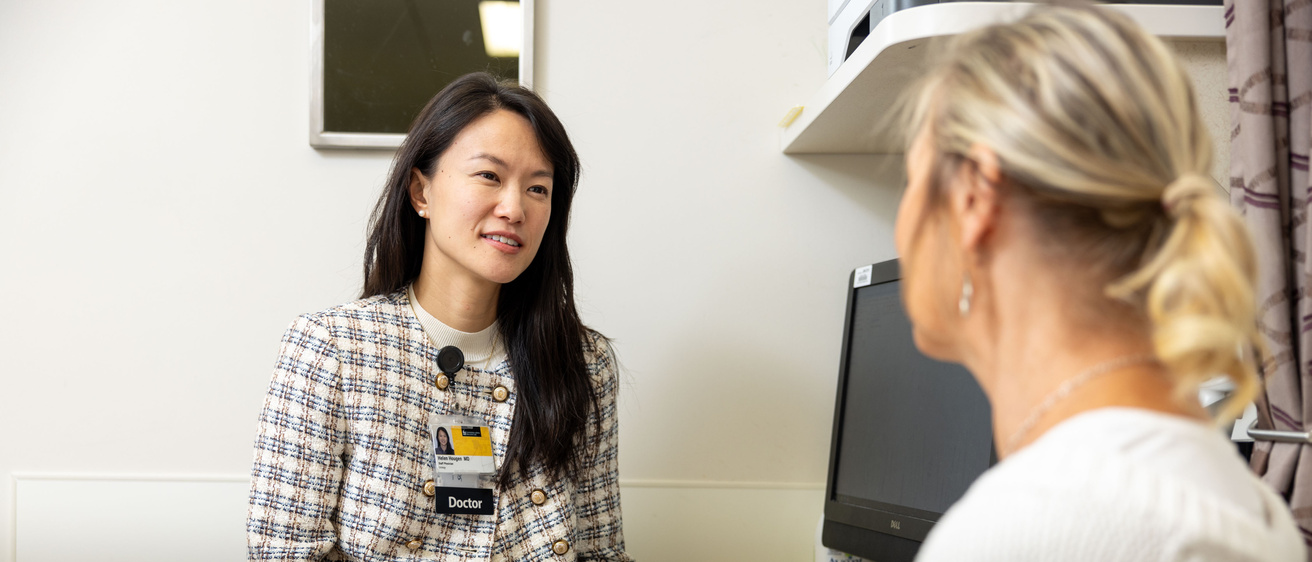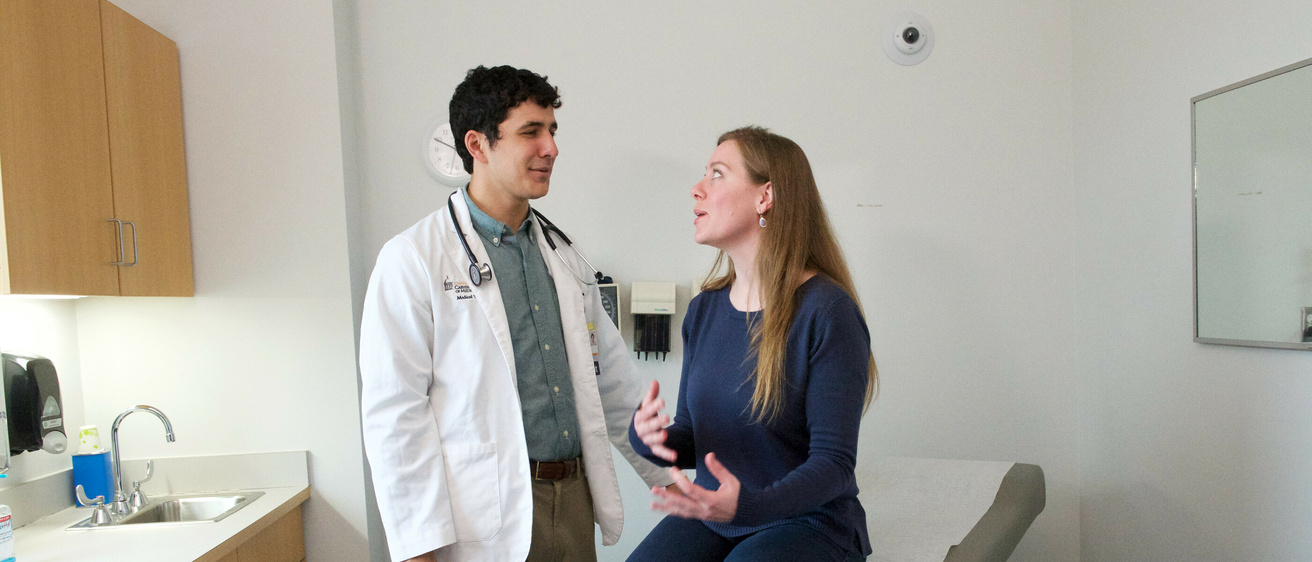Main navigation
A simulated patient/standardized patient*, often referred to as an SP, is someone who is trained to realistically portray patient scenarios.
To accomplish this goal, SPs memorize personal histories and take on physical affects, as well as exhibit personality traits to suit each individual case. These histories, affects, and personality traits are disseminated and practiced through trainings that are conducted with the Clinical Skills Assessment staff. SPs may also offer students patient-centered feedback and assess them according to specific learning objectives.
To maintain quality and standardization, SPs are monitored by members of our staff and given feedback on their performance. This is done in an effort to provide a supportive, effective, and credible learning experience for CCOM students.
* The terms standardized patient and simulated patient (SP) are often used interchangeably, though in some contexts they have different meanings.
SP Qualities and Expectations
Interpersonal Skills
The SP cohort includes actors, students, grad students, nurses, educators, retirees, and other various professionals - in short, everyday people. The SPs' diversity of experience is a contribution to our program's strength.
Reliability
The expectation is that SPs will be at all agreed upon trainings and performances. If there is a pattern of no shows, cancellations, or chronic lateness, an SP will cease to be offered work.
Memorization
Within each case, there may be specific information than an SP memorizes verbatim. These memorized bits of information will then be given when a student asks an appropriate question to elicit said information. This is vital to the standardization of an encounter.
Recall
After many encounters, an SP will be asked to complete an assessment or checklist. To complete a checklist, an SP will need to recall what occurred during the encounter to accurately reflect what a student did or did not do or ask.
Feedback
There are times when an SP will be asked to provide verbal feedback to a student. This verbal feedback focuses on behavior observed during the encounter (When you looked me in the eyes...) and how an SP felt in response to stated behavior (...I felt connected).

Training and Performance
SPs receive four to six hours of training prior to working with students; we want all SPs to walk into an exam room feeling confident and prepared. Below is a general outline of the steps taken before an SP arrives on the day of an event/performance.
- Recruitment: SP is contacted about their availability
- Confirmation: If available and selected, SP is confirmed for the event
- Training: Confirmed SPs meet on Zoom for training
Once an SP has been recruited and trained, they are ready to participate in an event/performance. SP events/performances operate within this general framework:
- Simulate: SP performs as a patient in a simulated encounter
- Articulate: SP shares with the student how it felt to be their patient
- Evaluate: SP completes an assessment checklist based on encounter
Note: Not all performances require verbal feedback and/or assessment.
Want to work as a simulated patient?
Here are some facts to consider:
1. SPs are considered casual employees.
- Hours vary from week to week, and from month to month.
- The number of hours available depends on SP availability, scheduled SP events, and number of SPs needed per event.
2. This is a paid position. As of August 1, 2023, the pay schedule is:
- Training: $20/hour
- Performance: starting at $20/hour
- As SPs gain experience, they are eligible for higher wages - up to $26/hr.
3. Most work and trainings are held Monday - Friday, between the hours of 8:00 am and 5:00 pm.
- Occasionally, programs run past 5:00 pm.
4. Before you work as an SP for the first time, these are the steps to follow:
- Fill out an application.
- If selected, you will be contacted by email to choose a time for a Zoom interview.
- You may then be invited to join us for an in-person Audition and Orientation Session to see our space, meet the staff, learn about the program, and practice a case.
- If hired, you will be asked to complete onboarding paperwork.
- You will attend New SP Logistics, Case Portrayal and Feedback Training.
- On the day of your first event, you will observe an experienced SP perform via a video monitor. Depending on the difficulty of the case, you may perform that day or at the next scheduled performance of that case.
Contact
Our program welcomes and encourages applications from women, minorities, veterans, mature workers, and persons with disabilities.
If you want more information or wish to apply, please complete this Application for Employment.
If you have additional questions, please send an email to SP-Recruitment@uiowa.edu.
